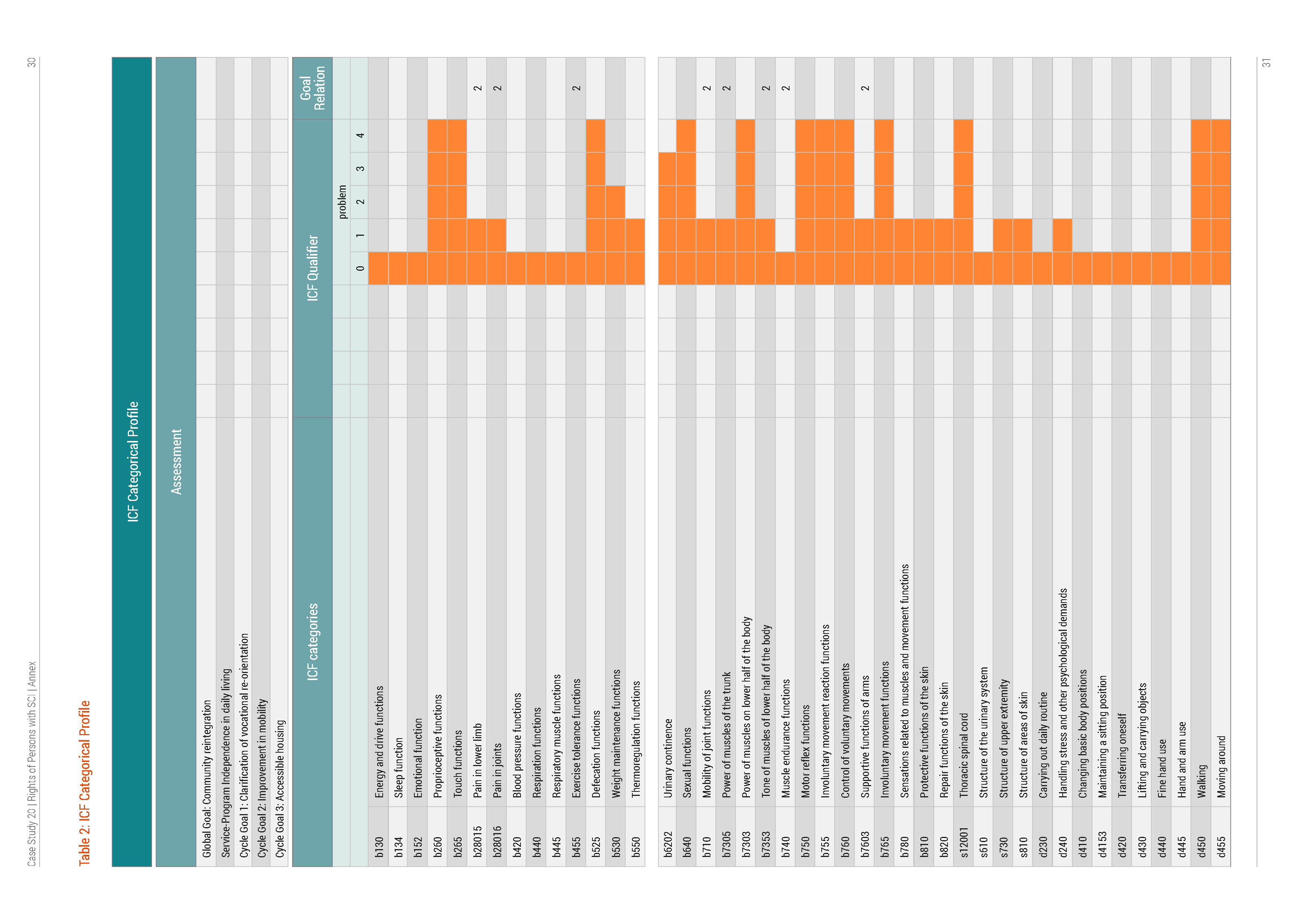Goal-setting/Determination of Intervention Targets
Setting Goals Oriented Toward Community Reintegration
Since the focus of Ben’s new Rehab-Cycle® was discharge and community reintegration planning, the short and long-term rehabilitation goals set reflected this focus as well. Accordingly, ‘community reintegration’ was defined as the long-term global goal. As an important step toward achieving this global goal, Ben and his rehabilitation team agreed to strive for ‘independence in daily living’ as the service program goal. The service program goal is the goal that is expected to be achieved at the end of this particular Rehab-Cycle®. As “stepping stones” toward meeting the service program goal, three short-term cycle goals – ‘clarification of vocational re-orientation’, ‘improvement in mobility’, and ‘accessible housing’ – were set. These cycle goals directly corresponded to the main problems that were identified during the comprehensive assessment as potential barriers to Ben’s community reintegration.
These rehabilitation goals were documented using the ICF Categorical Profile. The ICF Categorical Profile created for Ben not only showed his goals, but also a visual depiction of the comprehensive assessment results as categories of the International Classification of Functioning, Disability and Health (ICF) and a bar chart that reflected Ben's status in these categories at time of the assessment using ICF qualifiers.
Determining Targets to Address with Interventions
The ICF categories that corresponded to one or more of the goals and were intended to be addressed with specific interventions during the Rehab-Cycle® were considered intervention targets.
Intervention targets were identified for each of the cycle goals. For cycle goal 1 ‘clarification of vocational re-orientation’, d840 Apprenticeship and d870 Economic self-sufficiency were defined as intervention targets. For cycle goal 2 ‘improvement in mobility’, many intervention targets were identified. See the intervention targets on table 2. Lastly, for cycle goal 3 ‘accessible housing’, e155 Design, construction and building products and technology of buildings for private use was defined as an intervention target.
""...d920 Recreation and leisure was identified as an important target for intervention to foster Ben’s love of outdoor activities and sports and to facilitate community reintegration, Ben’s global goal.""
Ben’s rehabilitation team also defined d5300 Regulating urination as an intervention target, this time for the service program goal ‘independence in daily living’, since bladder management is essential for independence in daily living. Otherwise, Ben would have had to depend on personal care assistants or his family for this everyday activity. Moreover, d920 Recreation and leisure was identified as an important target for intervention to foster Ben’s love of outdoor activities and sports and to facilitate community reintegration, Ben’s global goal.
Normally, goal values, i.e. ICF qualifier ratings intended to reach after an intervention, are set for each intervention target. This is meant for evaluating whether the goal for each intervention target was achieved at the end of the Rehab-Cycle®. However, in the case study of Ben, the ICF Categorical Profile contained no goal values, since the case study focused on the role played by Swiss laws and regulations in Ben’s rehabilitation rather than the outcome of the rehabilitation itself.
